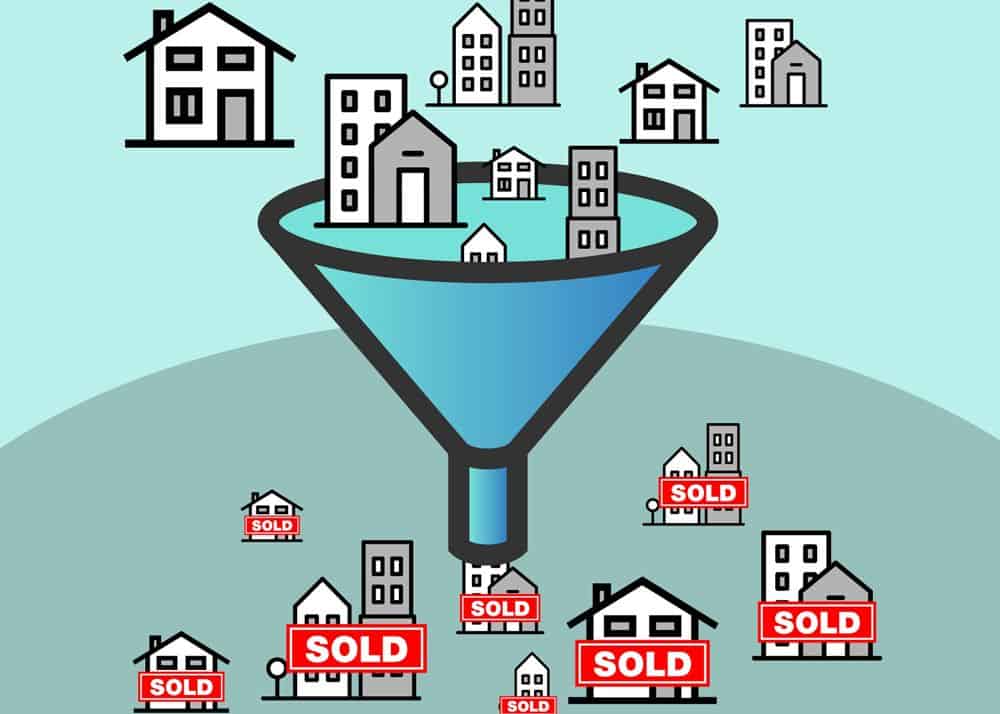Why real estate agents need a CRM
Why real estate agents need a good CRM

Most agents think they are experts and know how to effectively nurture their prospects. But until they get a property lead management system CRM, they won’t really understand what is the best ways to do so.
An experienced real estate agent is typically a professional who has steadily grown their business by building up their list of contacts and promoting their personal brand and the niche they specialise in for some time, including and especially online via digital marketing. But a newer agent is just getting started in the business and learning how best to manage their leads. So as new property agents start interacting with their prospects via content on their property website and providing their contact information, they will need to understand the best way to manage it all.
A CRM for real estate agents combined with marketing strategies can do great wonders in terms of turning leads into sales.
Experienced real estate experts, will benefit from a solution that offers comprehensive organization of all their leads with seamless integration. The new property agents will probably have a system that is simple to learn and offers excellent automation capabilities to help them develop their lead nurturing strategies.
CRMs handle the time time-consuming tasks for agents so you can devote your energy to the many of other responsibilities a typical real estate agent will have.
The beauty of an effective CRM is that it essentially does the work for you. There are various benefits to the tools available, depending on your individual business goals, and research shows CRM software has the biggest impact on customer retention rates and customer satisfaction rates in businesses who use those tools.
Download Now: Real Estate Marketing Plan Template [Free Access]

When choosing a real estate CRM make sure to have these features:
An Intuitive system
An intuitive CRM system is essential because it directly impacts user adoption and overall efficiency. A CRM that is easy to navigate and understand ensures that team members can quickly learn and effectively use the system, minimizing training time and resistance to new technology. This user-friendliness leads to more accurate data entry, improved customer interactions, and ultimately, better customer relationship management. An intuitive CRM also streamlines workflow, allowing agents to focus more on client engagement and less on navigating complex software, which can significantly enhance productivity and job satisfaction. In the fast-paced world of business, an intuitive CRM is not just a tool, but a vital component for sustaining competitive advantage and driving business success.
Make sure your real estate CRM Is easy to use, intuitive, and a system you understand easily. Meaning, no matter how much or little technology experience you have, you will still be able to easily learn how to do things like add and update contact records, send automatic emails to your prospects, and set task reminders for yourself.
Easy Accessible
A CRM system needs to be easily accessible to ensure that all team members can engage with it seamlessly, regardless of their location or device. In today’s fast-paced business environment, the ability to access customer information and manage relationships on-the-go is crucial. An easily accessible CRM facilitates real-time updates and communication, enhancing collaboration among team members and ensuring that customer interactions are timely and informed. This accessibility not only improves efficiency and productivity but also supports a more responsive and customer-centric approach. By enabling easy access to critical data and tools, a CRM empowers businesses to stay agile and responsive in a constantly evolving market.
Choose a CRM that lets you manage your database of leads from wherever you are. Make sure you can easily access it from your mobile phone.
Customisable
A CRM system needs to be customizable to cater to the unique processes, workflows, and client management styles of different businesses. Customization allows companies to tailor the CRM to their specific industry requirements, operational needs, and customer engagement strategies. This flexibility ensures that the CRM can evolve with the business, adapting to changing market conditions and business growth. By enabling personalization in terms of data fields, workflow automation, and reporting, a customizable CRM becomes a powerful tool that aligns closely with a company’s objectives and enhances its efficiency. It allows businesses to harness the full potential of their CRM investment by ensuring it perfectly fits their unique operational landscape.
Set your own marketing and sales goals to fit your individual and team needs. For example, if you’re an agency, having the capability to assign various qualified leads to your agents.
Marketing Automation
Integrating marketing automation into a CRM system is essential for streamlining and enhancing marketing efforts. This integration allows for the automation of repetitive tasks such as email campaigns, social media postings, and lead nurturing processes, leading to increased efficiency and consistency in marketing strategies. With marketing automation, businesses can ensure timely and personalized communication with their audience, improving engagement and conversion rates. It also provides valuable insights into customer behavior and campaign performance, enabling data-driven decision-making. By combining CRM and marketing automation, businesses can more effectively nurture leads, maintain customer relationships, and achieve a more cohesive and impactful marketing strategy.
Previously time-consuming tasks like sending follow-up emails and other content to your leads can be scheduled in advance which means even when you’re juggling several priorities, all of your prospects receive the same level of attention, with hours saved on your behalf.
Real-time Monitoring
Real-time monitoring in a CRM system is crucial for providing immediate insights into customer interactions, sales trends, and team performance. This feature enables businesses to react swiftly to customer needs and market changes, ensuring that opportunities are captured and issues are addressed promptly. Real-time data aids in making informed decisions, allowing for adjustments to strategies and operations as events unfold. It also enhances customer service by providing up-to-date information, ensuring that all communications are relevant and timely. For sales teams, real-time monitoring of leads and sales metrics can significantly boost efficiency and effectiveness. In essence, real-time monitoring transforms a CRM from a static database into a dynamic tool that actively supports and drives business success.
You can see the activity of leads on your site, like which properties they viewed and which of your site pages they visited — in other words, vital details that can help you determine where your prospects are in the marketing funnel.
Conclusion
In short, a CRM exists to make the necessary tasks related to your real estate lead generation and management significantly easier. It streamlines communication with your prospects and team. If you’re an agency or developer , lets you update lead information from virtually anywhere, and keeps your contacts organised so you can devote more of your precious time to nurturing the leads you’re confident will convert into new or recurring clients down the line.
Real estate agents greatly benefit from utilising a CRM system as it becomes an indispensable tool in managing and nurturing client relationships, the cornerstone of the real estate business. A CRM system not only streamlines organisational tasks and client communication but also provides valuable insights into client preferences and behaviours, enabling agents to tailor their services more effectively. The ability to track interactions and transactions in a centralised database significantly enhances efficiency, allowing agents to focus more on closing deals and less on administrative tasks. Furthermore, a CRM’s capacity for automation and real-time monitoring equips agents with the agility to respond swiftly to market changes and client needs. In the competitive field of real estate, a robust CRM is not just a convenience; it’s a vital asset for success and growth.
Stay tuned with the realestatemy.com/blog for more up-to-date tips and guides for real estate marketing professionals.






 WhatsApp us
WhatsApp us
bibiwin alih
September 20, 2020 at 12:07 pm
i want to get info onhow to get quality leads for property